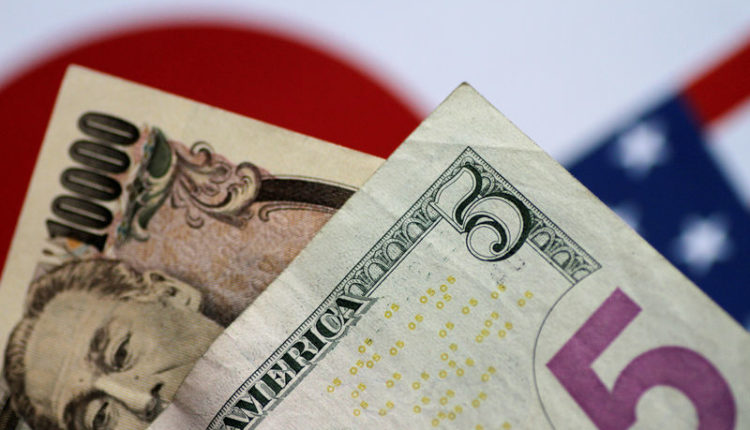Yen on backfoot as returning confidence dulls safe-haven allure
By Stanley White
TOKYO (Reuters) – The dollar held gains against the safe-haven yen on Thursday as ebbing recession worries soothed markets after earlier volatility although the pound nursed its losses as investors became increasingly worried about a hard Brexit.
Sterling fell 0.6% against the greenback on Wednesday after British Prime Minister Boris Johnson moved to suspend parliament, seen as a bid to limit debate ahead of the Oct. 31 deadline for the UK to leave the European Union. That increased expectations of a “no-deal Brexit,” which would mean a departure without trading agreements in place.
In Asian trade, investors will keep a close eye on stock markets, following gains on Wall Street overnight, as well as the Chinese central bank’s daily yuan fixing and any news of U.S.-China trade talks.
Sentiment in the currency market is likely to remain fragile, because there are still signs of stress. The U.S. Treasury yield curve remains inverted, which is commonly considered a sign of an impending recession.
“The gains in stocks have provided some temporary relief to risk sentiment, which has allowed the dollar to reclaim the 106 yen mark,” said Minori Uchida, head of global markets research at MUFG Bank in Tokyo.
“This is likely temporary, because we are still very much worried about tariffs. In addition, long-term yields show that Fed is behind the curve on rate cuts.”
Yields on 30-year Treasuries have hit a record low as investors scramble for the safety of government debt.
Against the dollar, the yen was steady early in Asian trading at 106.06 yen after falling 0.3% on Wednesday.
The dollar index (=USD), which measures the greenback against a basket of six major currencies, rose 0.16% to 98.189.
Spot gold was flat at $1,539.65 per ounce, following a 0.2% decline on Wednesday.
The yen and gold are both considered safe-haven assets, so they tend to weaken when other financial markets show signs that risk aversion has abated.
Currencies showed little reaction after U.S. Treasury Secretary Steven Mnuchin said he has no intention of intervening in the dollar right now, according to Bloomberg.
However, traders may remain concerned about U.S. currency policy because President Donald Trump has complained that the dollar is too strong and has repeatedly attacked the Federal Reserve for not cutting interest rates further.
Many traders say such intervention is unlikely, especially after the United States labeled China a currency manipulator earlier this month.
Still, there is some concern given Trump’s often erratic statements about the Fed and about negotiations with China to solve the trade war.
The Trump administration on Wednesday made official its extra 5% tariff on $300 billion in Chinese imports and set collection dates of Sept. 1 and Dec. 15, prompting hundreds of U.S. retail, footwear, toy and technology companies to warn of price hikes.
The trade dispute between the United States and China is now in its second year and is placing increasing strain on the global economy, forcing policy makers to respond with interest rate cuts and stimulus measures to bolster growth.
The pound held steady at $1.2217 on Thursday and was last quoted at 90.74 pence per euro (EURGBP=D3), following a 0.5% decline on Wednesday.
The suspension of UK parliament, which had to be approved by Queen Elizabeth, limits the time opponents have to derail a disorderly Brexit, but also increases the chance that Johnson could face a vote of no-confidence in his government, and possibly an election.

